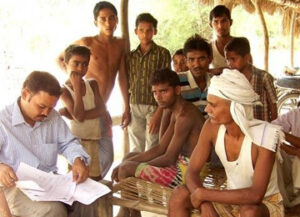Government surveys are conducted by various government agencies to collect data on a wide range of topics. The types of government surveys can vary based on the purpose and subject matter. Here are some common types of government surveys:
Census: A national census is a complete count of the population and households in a country. It provides essential demographic data and is usually conducted every ten years in many countries.
Labor Force Survey: This survey collects information about employment, unemployment, and the characteristics of the labor force, such as age, education, and occupation.
Consumer Expenditure Survey: This survey gathers data on household spending patterns, including expenditures on goods and services.
Business Surveys: These surveys collect data from businesses and industries, including information on production, sales, employment, and other economic indicators.
Health Surveys: These surveys focus on collecting data related to public health, including information on disease prevalence, healthcare access, and health behaviors.
Education Surveys: Education surveys gather data on educational attainment, enrollment, school performance, and other education-related metrics.
Housing Surveys: These surveys collect data on housing conditions, housing affordability, and housing preferences.
Agricultural Surveys: These surveys focus on collecting data related to agricultural production, land use, and farming practices.
Environmental Surveys: These surveys assess environmental conditions, including air and water quality, waste management, and conservation efforts.
Crime and Victimization Surveys: These surveys collect data on crime rates, victimization experiences, and public perceptions of crime and safety.
Transportation Surveys: These surveys gather data on travel patterns, transportation infrastructure, and commuting behavior.
Income and Wealth Surveys: These surveys collect data on household income, assets, and wealth distribution.
Social Surveys: Social surveys cover a wide range of topics related to social issues, including poverty, family dynamics, and social attitudes.
Demographic Surveys: These surveys focus on collecting data related to population characteristics such as age, gender, ethnicity, and marital status.
Science and Technology Surveys: These surveys assess trends in research and development, technology adoption, and innovation.
These are just some examples of the various types of government surveys. The specific surveys conducted by a government can vary depending on the country’s needs, priorities, and data requirements. Government surveys are critical for informed decision-making, policy formulation, and understanding societal trends.




